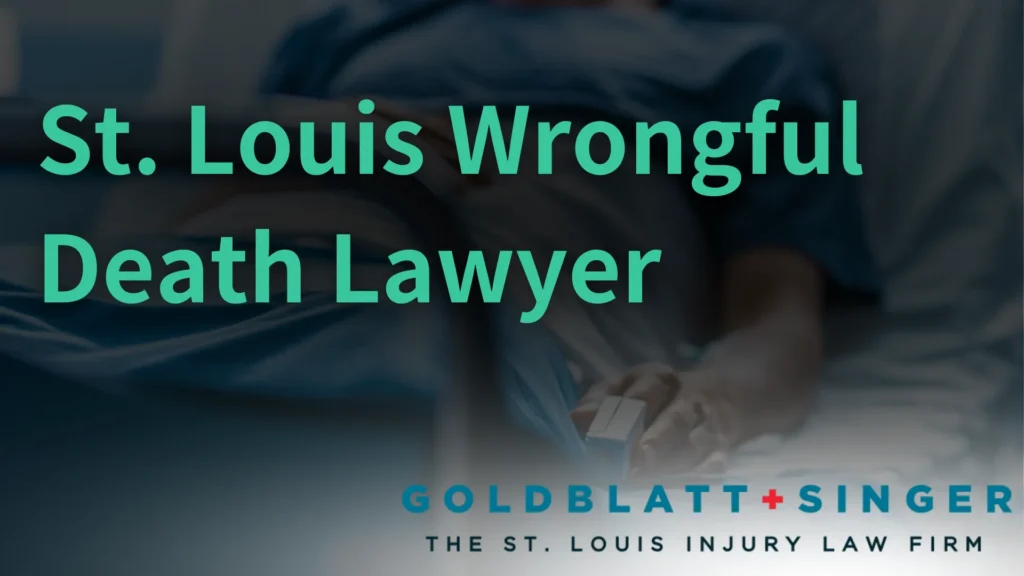
Coping with the unexpected loss of a loved one is difficult enough without having to worry about your financial future or pursuing legal action. Although no amount of money could ever compensate you for your loss, a wrongful death lawyer can help you get justice for your loved one. We will have you and your family’s best interests in mind and will fight on your behalf to hold the wrongful party accountable. You can trust us to advise you on your rights, what options may be available to you, and what steps you should take to seek the compensation you’re entitled to by law.
Dealing with an insurance company on your own can be tiresome and puts you at risk of being taken advantage of. Our wrongful death attorney will handle all communications and negotiations for you so you will have peace of mind knowing your case is being handled and moving forward. We also have the resources to perform a thorough investigation into the accident involving your loved one to gather the evidence needed to prove your claim. With our comprehensive understanding of the laws applicable to wrongful death cases and having frequently worked with insurance companies, we will strive to negotiate a fair settlement and ensure the compensation you recover accurately reflects your losses.

Missouri law limits the persons who may file a wrongful death lawsuit to the following in this order:
Only one wrongful death claim can be filed against a defendant. If you are unrelated to the deceased, you still may be able to pursue a wrongful death claim if appointed, but the proceeds of any awards will go to those entitled to them by law.
The value of a wrongful death case varies dramatically depending on the underlying facts. Settlements can often range anywhere from $500,000 to several million, but these figures are only examples. Many factors are considered when estimating the value of a wrongful death case, including the deceased’s:
These factors can either increase or decrease a family’s potential settlement. For example—a wrongful death case filed for the loss of an elderly family member who does not have a surviving spouse or children and was partially at fault for the accident would have a lower value compared to a deceased victim in their 20s survived by a spouse and three young children, who did not contribute to the accident.
Whether your loved one was partially responsible for the accident can also have a significant bearing on a wrongful death case’s worth. Under Missouri’s pure comparative fault law, a victim’s percentage of fault will reduce a settlement or award. For example, if a surviving spouse is awarded $500,000, but the victim was 40 percent to blame, the spouse will only receive 60 percent of the award, or $300,000.
In a successful wrongful death lawsuit, damages will be awarded. Damages is the legal term for the compensation meant to reimburse the surviving family members for their losses. There are two types of damages typically available in wrongful death claims: economic damages for monetary losses and non-economic damages for subjective losses. The damages awarded will vary based on the circumstances of each case but can include:
Punitive damages may also be awarded depending on the defendant’s degree of negligence. However, this type of compensation is reserved for cases involving an at-fault party who behaved with an extreme disregard for the safety of others. Unlike other types of compensation, punitive damages are intended to punish the defendant.
To bring a successful wrongful death lawsuit and recover damages requires demonstrating the defendant’s negligence was responsible for your loved one’s death. That involves establishing the following elements:
The defendant owed the deceased a duty of care. For example, in a wrongful death case involving a car accident, truck accident, or motorcycle accident, drivers owe others on the road a duty to obey traffic laws.
The defendant violated their duty by failing to act with the same level of care that a reasonable person would in a similar situation. For instance, if a driver who caused an accident was texting while driving or was under the influence of alcohol.
The defendant’s breach of duty directly caused your loved one’s death. In other words, the death would not have occurred if not for the defendant’s actions.
The surviving family suffered financial and/or personal losses related to their loved one’s death.
Depending on the circumstances of the case, causation can be a particularly challenging element to prove and is often disputed. The defendant will often try to shift the blame for the victim’s death onto the deceased or another party. To prove liability will require gathering extensive evidence, such as:
If the defendant was arrested or is facing criminal charges in relation to the accident that caused your loved one’s death, it can dramatically strengthen your wrongful death claim.
Each state has its own law that dictates how long surviving family members have to bring a wrongful death claim, known as the statute of limitations. In Missouri, the law allows you to bring a claim within three years of a loved one’s death. If you fail to file a lawsuit before this deadline, your claim will likely be dismissed by the judge, and the negligent party will not have to pay for your losses.
Although three years may seem like a long time, it is often better to speak to a wrongful death attorney in St. Louis and start the process right away. As soon as you hire a lawyer, they will begin collecting critical evidence of fault before it disappears and witnesses’ memories fade. The sooner you build a case, the higher your chances of getting justice and the compensation your family deserves.
“I was hurt in a car accident, and my attorney Christopher S. Saracino, Jr. and Courtney Mayer worked tirelessly to make sure I got all the help I needed to help with my recovery…
Goldblatt + Singer Law Firm TRULY CARES about their clients! They keep you informed about what is going on every step of the way. If you have any questions, they call you back right away (Even after regular working hours). GOLDBLATT + SINGER IS THE BEST LAW FIRM TO CHOOSE if you’re involved in an accident. I HIGHLY RECOMMEND this law firm!”
“I had a horrible accident and I knew my hospital bills were going to be ridiculously high and I had no idea what to do…
A friend referred me to this company and from the beginning they made me feel like I had someone on my side. They didn’t only call about my case, but to check on me and see how I was feeling. The experience I had with them was amazing and I would refer everyone to let them assist you with your problem!”
“Passing through the St. Louis area, I suffered a bad injury at a local business…
I called Amanda at Goldblatt + Singer to talk through what happened. Amanda and her team took my case and made sure I was taken care of from beginning to end.”
“Thank you for all you’ve done in helping me recover! I wanted you to know how much you are appreciated…you’ve been such a great help to me in many areas. God bless you for your services as a great attorney.”